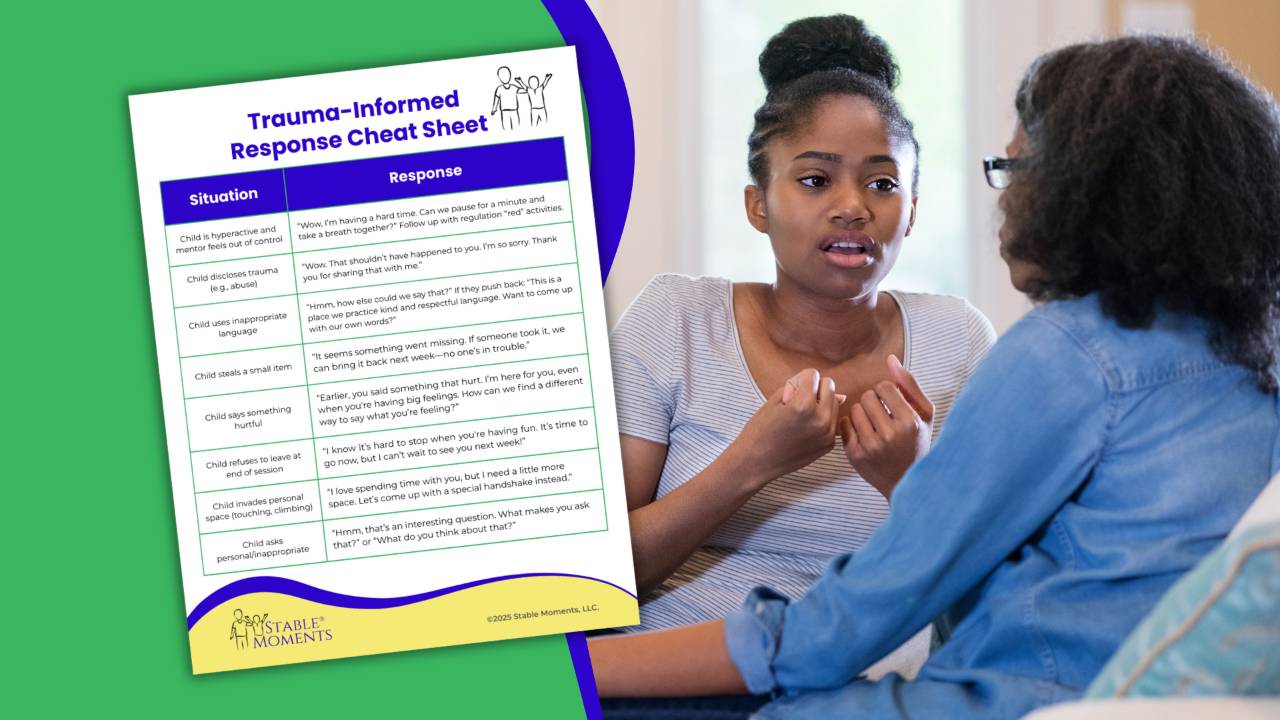Take a Moment
Many of the children we serve arrive in mentorship without a clear sense of who they are.
Not because they lack personality, talent, or potential, but because their early development was shaped by su...
When you’re working with kids who have experienced trauma, you can count on one thing, unexpected moments. Whether you're a mentor, teacher, volunteer, or caregiver, you’ve probably been in situations...
There are plenty of mentorship programs with good intentions, but many lack the structure and training needed to truly support kids with trauma—sometimes doing more harm than good.
Where Most Mentors...
Every year, thousands of children enter the foster care system, many of them having experienced significant trauma, neglect, or abuse. The goal is simple: provide them with a safe, loving environment ...
Children who have experienced foster care and developmental trauma often struggle with emotional regulation. The instability in their early years—frequent transitions, broken trust, and inconsistent c...
Connection and trust are the cornerstones of any mentoring relationship, especially when working with children who have experienced complex trauma. That’s why we created Meaningful Moments Cards—a too...
When we think of trauma, we often envision intense, shocking events—things that happen to someone, like abuse, violence, or a catastrophic loss. But for many children, the most profound wounds are not...
In the world of trauma, you may hear the terms Big T and little T referring to traumatic events in one’s life. Recently, there has been a movement away from categorizing trauma into big and little eve...
We can’t talk about complex trauma or children in foster care without discussing the effects of adverse childhood experiences (ACES).
ACES have a profound impact on human development, shaping both p...
As a young social worker, I often thought I wasn’t doing enough.
As a post-adoption case manager, I got kids on my caseload after an adoptive parent reached out for help. Many times parents felt as ...
One behavioral response to childhood trauma is lying. Many foster and adoptive parents grapple with this challenge, seeking understanding and effective interventions.
For children with complex trauma...
Being both flexible and structured are big parts of the Stable Moments model…but wait, how can you be flexible AND structured?
The truth is, kids, and most humans need a whole bunch of things…but...













